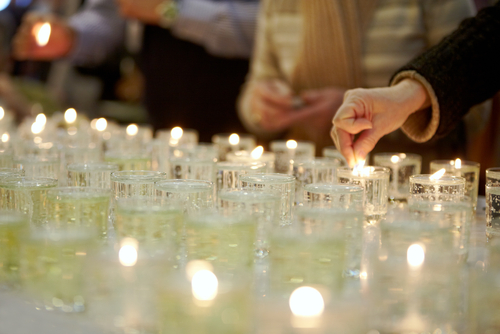
Followers of the Jewish faith place significant sentimental value on both human life and, in particular: family. When a family member passes away, a swift, decisive reaction is critical. Of course, it’s equally as essential to pre-plan or commission a Jewish monument quickly. However, often the family won’t uncover the monument until the Yahrzeit (Unveiling Ceremony). One key Jewish burial tradition is burying the body quickly, and beginning the grieving process.
The tradition of guarding the body is synonymous with this principle. In this post, we’ll explore this ancient tradition, its origins and how mourners honor it in modern times.
What is Shemira?
Shemira translates directly to “watching” or “guarding.” Essentially, it’s the traditional Jewish practice of observing and protecting the deceased’s body and one of the first mourning stages. Ultimately, this serves a dual purpose. First, it helps family members to feel at ease about the conditions of their relatives. In addition, it serves as a way to comfort the spirit of the deceased. Ultimately, the goal of Shemira is to ensure that the body remains undisturbed. With few exceptions, Orthodox Jews are the only people who continue to observe this tradition these days.
In the most traditional circles, someone must guard the body until burial. This is the same guiding principle which governs the practice of immediate burials. The longer the body remains outside of a burial ground, the more potential there is for illicit tampering. Of course, this is the primary reason that Jewish law enforces the policy of informing family members about death promptly; and laying the body to rest with the Jewish monument.
What is the Origin of Shemira?
Shemira is an ancient practice, and dates back at least two-thousand years. Originally, this practice was a show of solemn respect for the deceased. Before progressing to thee next life, the Jewish faith dictates that the soul temporarily remains around the body. But, there were several additional goals of this practice, as well.
During the earliest days of Shemira, this was a method of repelling critters and thieves. In modern times, we’re a lot less likely to deal with people attempting to tamper with the body or animals infiltrating the facility. However, the sentiment behind this practice remains just as essential to honoring mourners’ faith as ever.
Shomer: Guardian or Watcher
The Hebrew word shomer is not specific to death, either. This word translates to “watch,” “guard,” or “preserve.” It’s entirely possibly to apply this word towards other contexts, as well.
For example, people who follow Kosher dietary standards are called shomer kashrut. People who are shomer Shabbat agree to observe the strict rules of the Sabbath. Within this religious context, shomer means “one who guards the dead.”
Who Can be a Shomer?
Because the family’s in a state of high mourning, the Jewish faith calls for others to honor these guard duties.
Most shomers are from either the congregation or a chevra kadisha. A chevra kadisha is an organization specifically ordained to prepare and comfort bodies of the deceased. With this practice in place, someone who was significantly close to the deceased can stand guard over them following their passing.
Throughout the vigilance period, shomers must stand guard over the body of the deceased. This means that they must remain awake throughout the night. Shomers cannot eat, drink or indulge in other pleasures that are impossible for the deceased to enjoy. Often, the shomer recites psalms or other important readings.
Jewish Monuments Long Island
At Fox Monuments, we pride ourselves on creating the highest quality Jewish monuments available on Long Island. Our team of expert craftsmen have an extreme attention to detail and an unwavering commitment to creating monuments that pay exquisite homage to the Jewish faith. With a firsthand knowledge of Jewish burial customs, we can create a lasting and significant memorial that beautifully honors your faith and legacy.